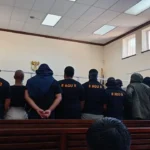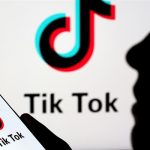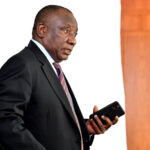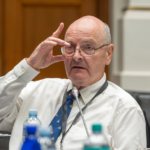The African National Congress (ANC), once the undisputed titan of South African politics, is facing a reckoning. After the party's dismal performance in the 2024 elections, a historic six-day national executive committee (NEC) meeting is set to convene, marking a desperate attempt to salvage its tattered reputation and plot a course back to electoral relevance.
The election results, described as a "calamity" by ANC Secretary-General Fikile Mbalula, saw the party's support plummet to a mere 40.1%, forcing it into a government of national unity (GNU) with a coalition of opposition parties. The shockwaves from this defeat have reverberated through Luthuli House, prompting a period of intense introspection and a scramble to address the party's declining popularity.
"We have set aside six days for the NEC… We are proposing six days. The first three days will focus on the election report, looking at the moment we are in, and then what happened in this election," Mbalula revealed in a candid interview with News24. "And then, the next three days, we'll focus on strategic thinking for the national executive committee, our allies and our employees."
The meeting, scheduled to take place after President Cyril Ramaphosa delivers his State of the Nation Address on Thursday, will be a pivotal moment for the ANC. It will be a chance for the party's top brass to dissect its electoral failings, analyse the factors that led to its decline, and formulate a strategy to regain the trust of the South African electorate.
However, the path to redemption is fraught with challenges. The ANC's "renewal" process, a recurring theme in the party's rhetoric for over a decade, has yielded little tangible change. Even former President Thabo Mbeki, a stalwart of the ANC, lamented the party's decline in quality, expressing concerns about the calibre of its members and recruits in the lead-up to the election.
Mbalula, however, insists that this time, the renewal process will be different. "What is different is informed by material conditions that we are a party standing here today with a reduced majority… we have now entered the era of coalitions. And how, as a party and a government, we are going to behave and conduct our business and respond to these material conditions has got to be something like a change of approach."
But scepticism abounds regarding the ANC's ability to truly transform itself. The party's decision to deploy former Sports Minister Zizi Kodwa, who faces corruption charges linked to payments from technology company EOH, as an MP in Parliament has further fuelled doubts.
Mbalula defended the move, citing the ANC's step-aside rules, but acknowledged that the NEC would have to revisit the matter. "So, if the step-aside rule, members… including of the Integrity Commission [believe] that there's got to be amends in terms of the step-aside, I will bring it to the NEC. But I wouldn't act on anyone, unless I'm guided otherwise by the rules from the perspective of the NEC."
The ANC's commitment to renewal is also tested by the presence of other leaders implicated in corruption scandals who have been appointed to prominent parliamentary positions. Professor Susan Booysen, an independent political analyst, believes these appointments do little to inspire confidence in the party's ability to change its ways.
"The public image of the organisation needs to change first… you need to do more than have a six-day NEC meeting or reorganise Luthuli House," she states, highlighting the need for tangible action beyond mere rhetoric.
Adding to the pressure on the ANC is the looming succession race. With Cyril Ramaphosa facing his final term as party president, the party's internal power struggles are already beginning to simmer. Past succession battles have often led to deep divisions within the ANC, spilling over into the state and its functioning.
Mbalula acknowledges the potential for turmoil, warning against "uncontrollable desires for power" and urging party members to focus on the task at hand. "I think the biggest task of the leadership now is not to fuel tensions. It's not to have what I call uncontrollable desires for power. People were busy during the elections, even in our ranks, discussing who must come in and who must not come and so on. Who must be a leader and so on," he said.
He expresses a desire to leave a legacy that sees the ANC rise from the ashes, not succumb to its own internal divisions. "I think that's when, even if I die, I think I will be haunted for the rest of my life because, look, this would have been the mess we have left behind. I see an opportunity out of this that the movement will rise because now we are wide awake… we know now that certain things can happen," he said.

Follow Us on Twitter










